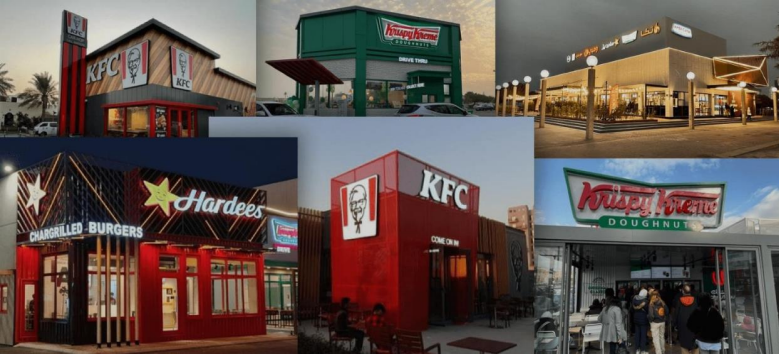Boycotts Hit Global Brands Hard
The Middle East’s leading food and beverage operator, Americana Middle East strategy, is undergoing a significant strategic shift after reporting a 40% decline in profits. This downturn is driven by widespread consumer boycotts targeting Western brands perceived as aligned with U.S. support for Israel.
Americana Middle East strategy, which operates franchises such as KFC, Pizza Hut, and Krispy Kreme in the region, has witnessed declining sales as more consumers turn toward local dining and home-grown alternatives. Analysts highlight that this shift reflects a deeper trend in regional consumption, where loyalty is increasingly tied to political and cultural identity.
Profit Decline Spurs Strategic Shift
Americana’s quarterly report revealed one of its steepest declines, with a 40% drop in profits. Company executives acknowledged the need to move beyond its traditional reliance on U.S. brands.
The company is now planning to:
- Acquire local food businesses
- Launch regionally inspired quick-service concepts
- Invest in cost-reduction initiatives
This strategy reflects a recognition that long-term resilience requires adaptation to evolving consumer sentiment.
Localization as a Growth Strategy
A key part of Americana’s new approach is localization. By reducing its dependence on U.S. brands, the company seeks to build deeper cultural and economic ties with Middle Eastern consumers.
This could lead to collaborations with local startups, strengthened regional supply chains, and enhanced partnerships with governments promoting domestic industries.
Localization not only protects Americana Middle East strategy from political risks but also positions it as a champion of regional food innovation, potentially restoring consumer trust.
Global Brands at a Crossroads
Americana’s struggles mirror those faced by many global brands in the Middle East. Once seen as untouchable, Western fast-food chains are now vulnerable to boycotts, cultural shifts, and political pressures.
The ongoing boycotts have disrupted supply chains and forced multinational corporations to reconsider their market strategies. Americana’s experience illustrates the risks of over-dependence on Western partnerships.
Investor Reactions and Market Outlook
Despite the setback, investors are closely monitoring Americana’s response. Many analysts believe its diversification strategy could stabilize revenues in the medium term by opening new revenue streams and reducing reputational risks.
However, challenges remain:
- Rising local competition
- Growing consumer demand for affordability and authenticity
Americana must balance cost control with brand reinvention to regain dominance.
A Turning Point for Regional Business Models
This pivot reflects a broader transformation in Middle Eastern markets. For decades, global franchises dominated the food and beverage sector, but today, local identity and economic independence are gaining prominence.
If successful, Americana’s strategy could serve as a blueprint for other regional operators facing similar challenges, showcasing how Middle Eastern markets are becoming active shapers of global commerce.
Conclusion: Resilience Through Reinvention
The case of Americana Middle East strategy demonstrates how politics and consumer activism can reshape business landscapes. By embracing localization, acquisitions, and cost optimization, the company is taking a proactive approach to ensure survival and long-term growth.
As consumer preferences evolve, Americana’s reinvention could define a new era of regionally driven economic growth in the Middle East.









